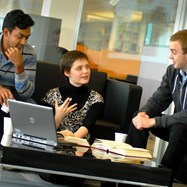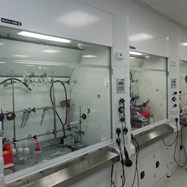Blog: a step towards a new post-Brexit migration system?
28 March 2018
Dr Hollie Chandler, Senior Policy Analyst at the Russell Group, discusses why the Migration Advisory Committee must include discussion with universities in their plans for the future immigration system.
With just a year to go until the UK leaves the EU, yesterday we saw a glimpse of the progress being made by the Migration Advisory Committee (MAC) in its work to provide an evidence base for the design of a new post-Brexit immigration system.
In its interim report on European Economic Area (EEA) workers in the UK labour market, the MAC summarises the evidence it has received from a range of sectors on the contribution and impact of EEA workers. It also considers the regional dimensions of these responses in a separate chapter.

The MAC stops short of drawing firm conclusions from the responses received, although it does state businesses employ EEA migrants because they are the best or sometimes only available candidates. The report goes on to highlight the extent of concern felt by employers across all sectors about the prospects of future restrictions on EEA migration. However, it stresses that evidence beyond employer submissions will be important to assess the full impacts of EEA migrants on the lives of UK residents.
Of the 417 responses the MAC received, 45 were from the education sector, including many universities and higher education provider groups. The high level of interest and engagement from the sector is not surprising given the importance of EU nationals to UK higher education.
EU nationals make up nearly 12% of staff at UK universities. This proportion is higher at Russell Group universities. In 2016/17, there were 26,500 EU staff at our universities, making up 15% of the overall workforce and 23% of academics.
EU staff at our universities are making a direct contribution to high quality teaching and research – training the next generation, driving innovation and promoting partnerships between our universities and institutions in the EU and beyond.
Our evidence to the MAC outlines why the contributions EU staff are making towards the success of our universities should not be underestimated. We therefore whole-heartedly welcome guarantees made by UK Government that EU staff can stay in the UK post-Brexit and their rights will be maintained.
Last week we saw further important guarantees for EU nationals arriving during the transition period. The draft Withdrawal Agreement published on the 19th March states all those arriving before 31st December 2020 will maintain the same rights and will be eligible for permanent residence after 5 years in the UK. This certainty is important both for UK universities looking to employ EU nationals and for prospective staff who will understandably want clarity on their future rights.
But how easily will UK universities be able to recruit talented staff from the EEA once the transition period ends?
Unfortunately, we still don’t know much about Government’s thinking on EEA migration post-transition. The immigration white paper, which was expected late 2017, has yet to be published. Arguably there are merits in delaying this paper, for example to ensure that evidence currently being compiled by the MAC is fully considered and can inform the options for future EEA migration. However, with Brexit fast approaching and reports that a draft white paper exists and is waiting in the wings, it’s unclear to what extent Ministers will be able to draw on the MAC’s findings.
The report hints at the complexity of the evidence and the huge task facing Government. This is an opportunity for the UK to consider its immigration system in the round and ensure it is fit for purpose for the UK’s future outside of the EU. But we need to get it right and time is running out. It’s crucial that Government can fully review the MAC’s evidence, but it’s equally important to allow enough time for a genuine and thorough dialogue with universities, charities and industry on the merits and limitations of different immigration options.
This conversation must begin now.
-
Hollie Chandler
Hollie.Chandler@russellgroup.ac.uk
020 3816 1307
 X
X


